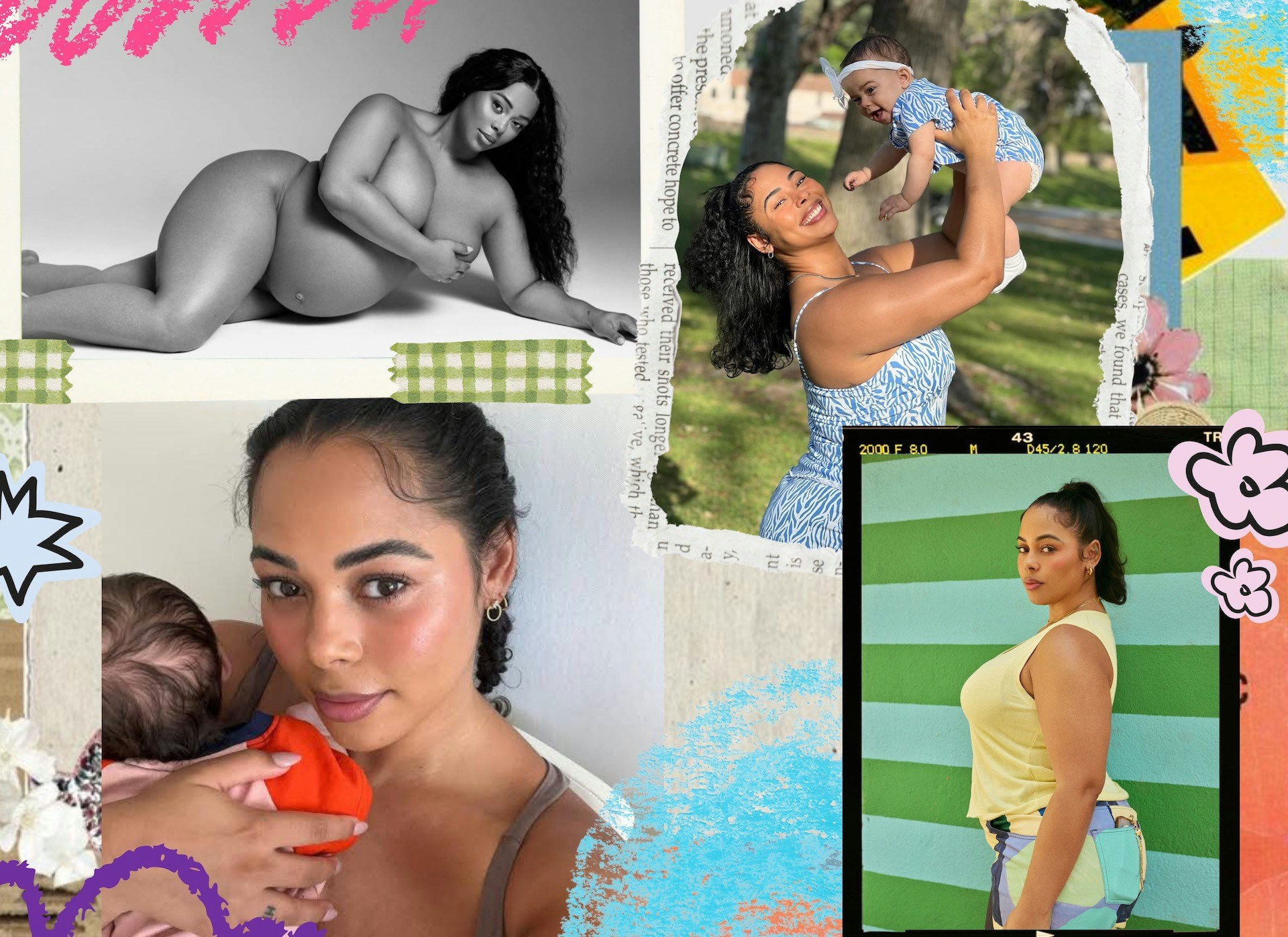
The cultural perspective around weight needs to change.
Photos by Frankie Marin, Words by AnaMaria Glavan
One of the most exciting cultural shifts of the past 15 years has been the call for representation—models who embody different sizes and shapes. Consumers demanded to see the full spectrum of the human body, and some brands stepped up to take responsibility. (Important aside: not all.)
Tabria Majors, a plus-size model who has worked with Forever 21, Ivy Park, and Rihanna’s Savage X Fenty, as well as host of the Milk Drunk podcast, has become a key figure in that movement. “When I thought of a model back then, I thought of Naomi Campbell, Tyra Banks, Linda Evangelista, and all of these very thin women. That was all that was represented,” she says.
Our conversation with Tabria feels particularly pertinent because, as anyone with an internet connection can see, another shift is underway. And this one is far less welcoming of number sizes that surpass the 00—2 range. As she notes, an obsession with thinness is back “in” (those are VERY large quotation marks), and it’s being driven not by sustainable wellness initiatives like universal healthcare, but by fast fixes. Layered on top of that: the rise of AI in modeling.
Below, we spoke with Tabria about modeling and how her life has shifted since becoming a mother. The blatant lie of the six-week window, the lack of bedside manner, and one frustrating realization after every OB visit: how much of our healthcare system attributes everything to weight.
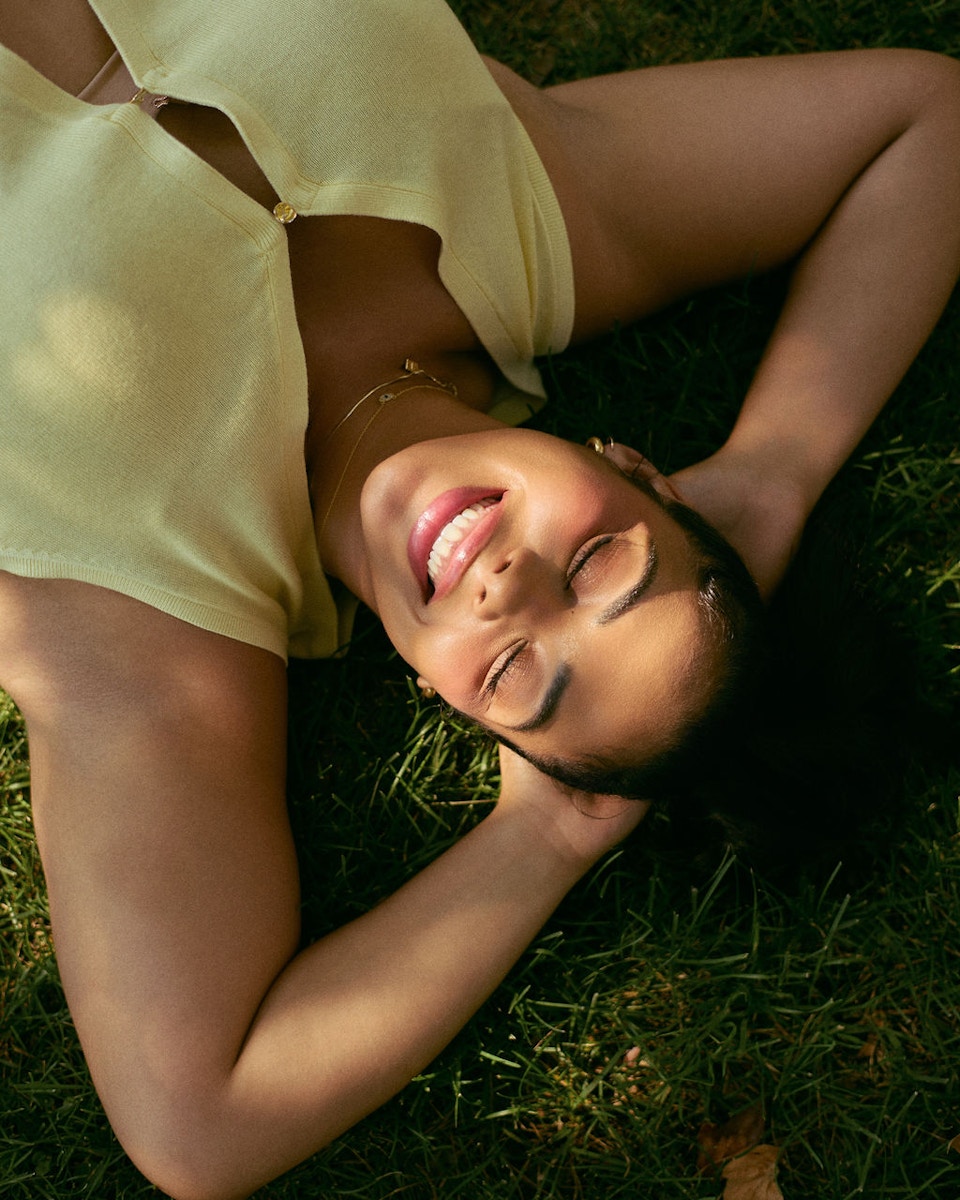

It’s a shaky time for modeling, particularly for plus-size modeling
I moved to LA, got a gig as a live-in nanny, got fired after two weeks, and was forced to find the first place I could afford. It got awkward. The mom sat me down one day and told me she didn’t feel comfortable with me being around her husband. I was shocked because I never even saw him. He was a plastic surgeon, always at work. I had literally moved there to live with them, and suddenly, I was out.
I ended up finding the cheapest place near USC. I was considering becoming an orthodontist at the time and had taken the Dental Admissions Test, where your score is good for three years. My plan was to move to LA and, if nothing happened within that three-year window, I’d go back and pursue dental school. But modeling ended up working out. I got into it through a friend—the first person I met in LA—who was an attorney by day and a photographer by night. He submitted me into a modeling contest and I won.
When I thought of a model back then, I thought of Naomi Campbell, Tyra Banks, Linda Evangelista, and all of these very thin women. That was all that was represented. I didn’t take modeling seriously at first as a result. When I was signed, I thought, Okay, sure. A model. We’ll see what happens. And here I am ten years later.
Right now, though, it’s a shaky time for the industry—especially for plus-size modeling. On one hand, you have this Ozempic craze. Everyone’s losing weight. If you want to be on a wellness journey, that’s totally fine. I commend anyone who does it. But seeing it marketed as the cure to obesity is wild to me. That’s not the cure. The cure would be universal healthcare, better quality foods. It’s so much more than just a shot you inject yourself with.
Then there’s the rise of AI. AI models are being used by brands and it’s impacting everyone in the industry. I personally haven’t had a request to be an AI model, but I know girls who have. They’ve sold the rights to their image for companies to use. One model I worked with back in 2017 told me she sold the rights to her body to a big department store brand. She was paid $50,000, which seemed like a huge payday, but it was in perpetuity. They could use her image forever. That’s so much potential money left on the table. On top of that, it cuts out the photographer, the glam team, the stylist… everyone else who would normally be part of a shoot. It’s a tough pill to swallow.

"Right now, it’s a shaky time for the industry—especially for plus-size modeling. On one hand, you have this Ozempic craze. Everyone’s losing weight. If you want to be on a wellness journey, that’s totally fine. I commend anyone who does it. But seeing it marketed as the cure to obesity is wild to me. That’s not the cure. The cure would be universal healthcare, better quality foods. It’s so much more than just a shot you inject yourself with."

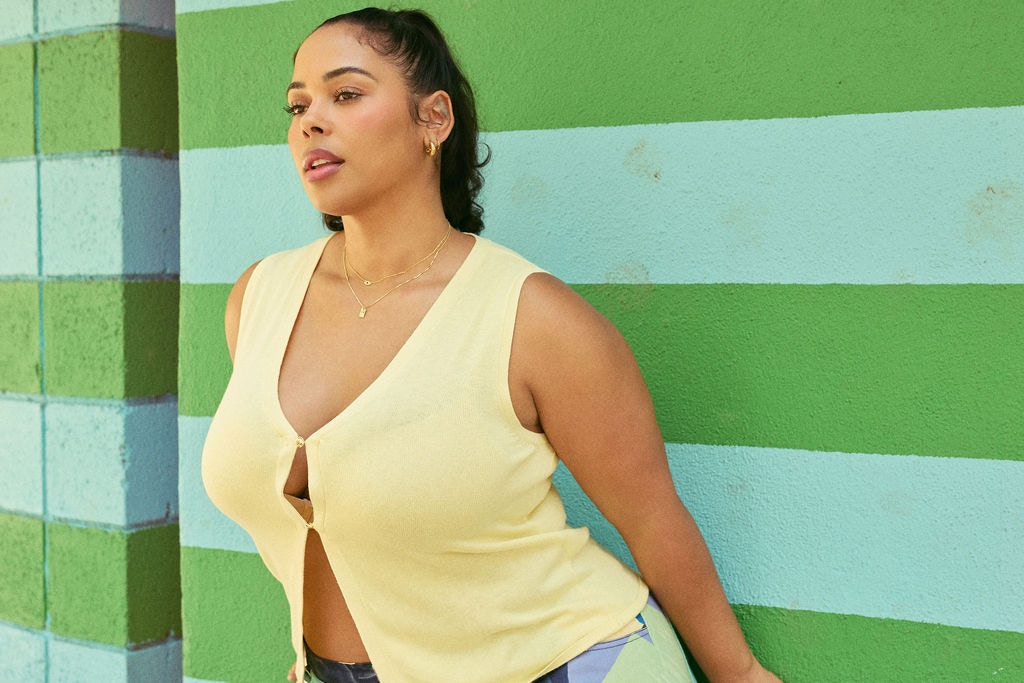
“You can’t look at someone’s body and know what’s going on internally”
I wouldn’t say I was pressured into having a C-section, but my OBs were definitely preparing me for one early on. Because of my weight and my daughter’s size—they said she was a big baby, and she was, ten pounds—they kept planting that seed. At every scan, the ultrasound tech would tell me to prepare for surgery. And I remember thinking, Okay, I’m a big person, so I’ll probably have a big baby. My midwives’ approach was completely different. My weight was never a concern for them. They kept reassuring me: Tabria, whatever baby your body produces, it can handle. I trusted myself, trusted them, and I was able to get through the process. It was painful, of course, but it was beautiful. Something I’ll never forget.
That experience also made me realize how much of our healthcare system attributes everything to weight. I was marked “morbidly obese” on every file, right at the top of my chart, every single visit. And yet so many women I knew who were pregnant at the same time—smaller women—had all sorts of complications. I knew about ten girls pregnant in 2023, and every one had some health-related issue. It just shows you can’t look at someone’s body and know what’s going on internally.
The lack of bedside manner is another issue. Sometimes I’m blown away by the way healthcare professionals speak to you. There really should be a whole component in medical school on how to treat patients with compassion. For me, bringing awareness is the one thing I know how to do, and I try to do it whenever I can. But overall, the system needs so much change.

"That experience also made me realize how much of our healthcare system attributes everything to weight. I was marked “morbidly obese” on every file, right at the top of my chart, every single visit. And yet so many women I knew who were pregnant at the same time—smaller women—had all sorts of complications. I knew about ten girls pregnant in 2023, and every one had some health-related issue. It just shows you can’t look at someone’s body and know what’s going on internally."


Breaking news: The six-week window line we all hear is BS
Postpartum has been an adjustment. For me, it’s lasted almost two years, and studies say it can last up to three. At six months I thought I felt normal, but really that was just when I began to get back into a groove—working out, feeling better, even feeling more comfortable with sex again. That six-week window they tell you about is insane, especially if you have a tear. A pelvic floor therapist once told me, for each degree of tear, you should add three weeks to recovery. That made sense, because at my six-week checkup I did not feel ready, even though my OB “cleared” me. Pelvic floor therapy helped a lot, but getting back into the swing of things took time. You really need a patient, understanding partner. If that’s not the case, you need to reevaluate the relationship. Now, almost two years later, I feel much better.
On hosting Milk Drunk
People always say that you need to have a niche on social media. That’s the advice every manager gives. I don’t subscribe to that because I don’t want to be just one type of creator. I really just show up as myself and post whatever’s on my mind at the time. Sometimes it’s serious, sometimes it’s fun. I like that people don’t really know what to expect from me—it’s not calculated, it’s just whatever I’m feeling in the moment. I don’t talk about motherhood a lot but I’d like to start sharing more, here and there. The Milk Drunk podcast became that start for me.
I did a campaign with Bobbie to raise awareness about the lack of maternity care and paid family leave in the U.S., and we built a relationship after that. I was already using Bobbie formula, and they eventually approached me to host their Milk Drunk podcast. Sharing my birth story online and being outspoken about my beliefs made me a good fit. I have a podcast with my best friend Mindy called The Thick Podcast, but this felt like the right opportunity at the right time in my life. I had just had my daughter and it all aligned. Hosting Milk Drunk has given me space for conversations that feel important and affirming.
We had so many great guests and lots of professionals in the childcare space. One of the episodes that stood out to me was when we had Dr. Anna Malaika Tubbs and, in that same episode, Debbie Allen, a Black midwife. I had a home birth with midwives helping me throughout my whole process, so it was a really enlightening conversation. We talked about maternal health in America—which in general is terrible—but Black maternal health is even worse. Hearing about those gaps and the ways we might overcome them really stuck with me. When the system is this broken, it’s hard to fix anything, but I loved that conversation because it felt personal to me. I experienced a lot of that firsthand since I saw both my OBs and my midwives at the same time.
"A pelvic floor therapist once told me, for each degree of tear, you should add three weeks to recovery. That made sense, because at my six-week checkup I did not feel ready, even though my OB “cleared” me. Pelvic floor therapy helped a lot, but getting back into the swing of things took time. You really need a patient, understanding partner. If that’s not the case, you need to reevaluate the relationship."
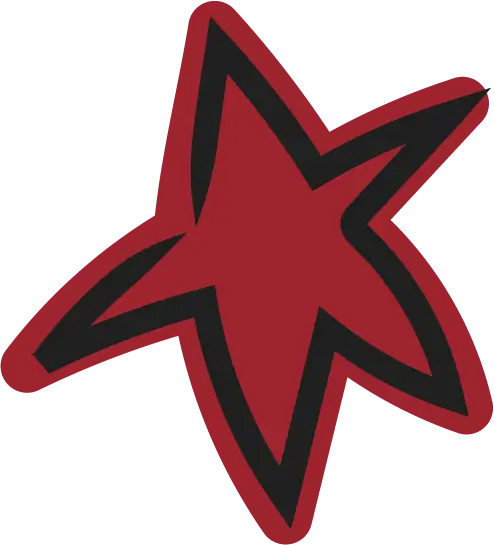
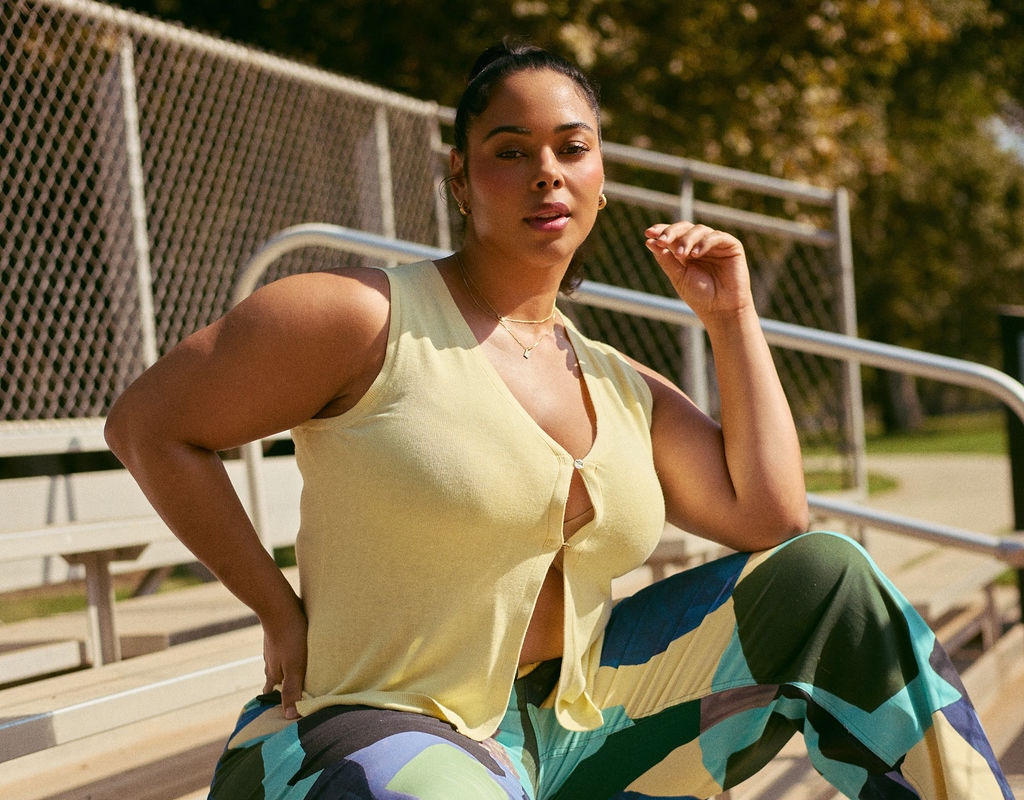
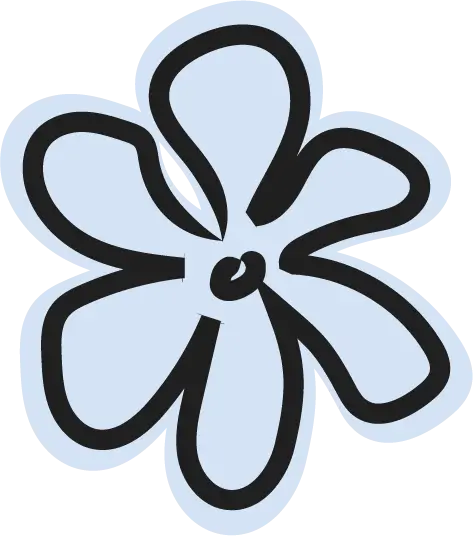
"We talked about maternal health in America—which in general is terrible—but Black maternal health is even worse. Hearing about those gaps and the ways we might overcome them really stuck with me. When the system is this broken, it’s hard to fix anything, but I loved that conversation because it felt personal to me. I experienced a lot of that firsthand since I saw both my OBs and my midwives at the same time."
Finding love on a Fashion Nova shoot
People always expect me to be more bubbly and outgoing when they meet me in person. Instead, they’ll meet me and tell me that I am, for lack of a better word, really chill. It’s not meant as an insult, just an observation that my persona online feels slightly different. I’m mellow and go-with-the-flow in real life, whereas online, I probably come across as more chipper.
My partner isn’t into social media at all; he only has it because he has to. He doesn’t show our daughter’s face on his accounts, and that’s his choice. He doesn’t mind if I post about her on mine but we’ve always agreed to keep her name private and not overshare. I don’t want people coming to my page expecting to see her. I want them to come for me.
It helps that my husband is in the industry—he also acts and models—and he’s really understanding because of it. We met on set for a Fashion Nova shoot. We’d known each other for years before dating, and then one day he moved directly across the street from me. We could literally see into each other’s windows. Once that happened, we thought, Okay, this is meant to be. We dated for a year, then moved in together, and I got pregnant three months later. It happened pretty fast but we just knew.
Nashville —> LA
Most of my family now lives in Atlanta but I’m originally from Nashville. My dad still lives there, so sometimes I’ll pop in for a day or two. I barely recognize it. There are so many new buildings and gentrification has changed a lot of the places I used to know. The neighborhoods I grew up around feel unfamiliar, almost like a different city.
At the same time, I love seeing how diverse Nashville has become. When I was in school it was just Black and white with maybe a few Hispanic kids, but now there’s everybody. It feels like a melting pot, and to me that’s what America should look like. It’s really inspiring to see that shift. Of course, it’s still complicated—there are some close-minded people and I didn’t enjoy growing up there, which is why I left—but the city itself has grown into something I never could have imagined when I was younger.


A (potential) member of the Mickey Mouse Clubhouse
I was raised by my grandparents who took me in when I was four. They were in their fifties at the time, born in the 1940s, so their mentality was very different. They were strict, which made me sneaky and rebellious, and there was a lot of tension in our relationship. They gave me an amazing childhood—I never wanted for anything—but we weren’t emotional people. We didn’t hug much, we didn’t say I love you very often. Even now, if my grandma says it, I think something’s wrong. That’s just how it was.
". I want her to feel emotionally safe with me, to know she can come to me about anything. I don’t want her sneaking around the way I did. That’s something I work on in therapy, making sure I’m emotionally open and available to her."

Parenting styles back then were so different. I don’t fault them at all. They did the best they could with what they had, taking in their granddaughter at 50 when they thought they were done raising kids. I’m so thankful to them. But I also want to be conscious not to repeat that pattern with my daughter. I want her to feel emotionally safe with me, to know she can come to me about anything. I don’t want her sneaking around the way I did. That’s something I work on in therapy, making sure I’m emotionally open and available to her.
My partner’s family is the total opposite of what I grew up with. They’re affectionate, always hugging and kissing, always throwing big family parties. It’s such a contrast, and it makes me realize how much I want my daughter to feel that same openness and warmth. They’re also huge Disney fanatics, which I was never really into, but we went yesterday and seeing it through my daughter’s eyes, I finally got it. They do this with every new set of kids in the family, and that wonder and joy—even if they’ve been a million times—feels so refreshing when you see it through a child’s eyes for the first time. My daughter is definitely softening me up to the world.